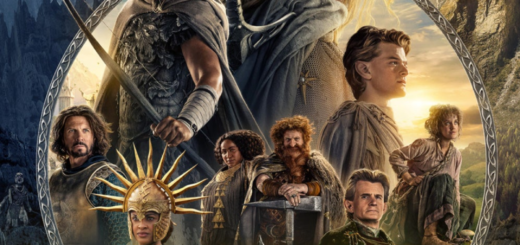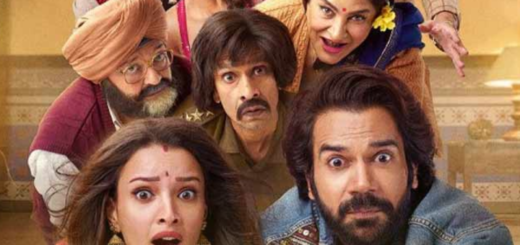Toxic Fan Culture: The Dark Side of Fandom Across the Globe

Fan culture has been celebrated for fostering communities and creating a sense of belonging. Fans rally behind artists, actors, and creators, amplifying their success and creating a powerful cultural impact. However, this culture has a dark underbelly—toxic fan behavior—that has escalated in recent years, often crossing boundaries of respect, privacy, and basic human decency. This phenomenon cuts across industries, affecting K-pop, Tollywood, Bollywood, Hollywood, I-pop, and more, leaving a trail of emotional distress and societal damage.
This article examines the manifestations of toxic fan culture globally, recent high-profile incidents, and the implications for celebrities, fans, and society.
What Is Toxic Fan Culture?
Toxic fan culture refers to unhealthy behaviors exhibited by fans or groups of fans that lead to harmful consequences. While passion and loyalty often drive fandoms, some fans overstep boundaries, exhibiting problematic behaviors that include:
- Harassment and Threats: Fans attack celebrities or others within the community, often online, using abusive language and threats.
- Invasion of Privacy: Stalking celebrities, following them to their homes, or leaking personal information like phone numbers and addresses.
- Aggression at Events: Chaotic crowd behavior leading to dangerous situations, including stampedes and riots.
- Overbearing Expectations: Fans demand that celebrities conform to their ideals, exerting control over their actions, relationships, and opinions.
- Cancel Culture and Fan Wars: Toxic fandoms attack other fan groups or individuals online, leading to hostility and cyberbullying.
This toxic behavior often stems from an unrealistic sense of ownership over celebrities and their work, coupled with the anonymity and amplifying effects of social media.
Recent Incidents of Toxic Fan Culture
K-pop: Obsession and Privacy Invasion
K-pop has long struggled with toxic fan behavior, amplified by the intense devotion of its global fandom.
- Sasaeng Fans
- Sasaeng fans are notorious for their obsessive actions, including stalking idols, hacking into their private accounts, or physically intruding into their spaces.
- BTS, one of the biggest K-pop groups, has faced extreme sasaeng incidents, with fans following them on flights or waiting outside their hotel rooms for hours. Such incidents have left members voicing concerns about their safety.
- Mental Health Struggles
- Several K-pop idols, including Jonghyun of SHINee and Sulli of f(x), have faced relentless scrutiny and online harassment, contributing to their tragic deaths. These incidents have sparked global discussions about the emotional toll of fame and fan culture.
- Social Media Harassment
- K-pop idols often receive hate comments or threats from fans who disagree with their choices, such as dating, collaborations, or stylistic changes. For example, Blackpink’s Lisa faced a barrage of racial comments during her solo promotions.
Tollywood: Fan Extremism
Tollywood (the Telugu-language film industry) experiences intense fan loyalty, often manifesting in dangerous behavior.
- Stampedes at Events
- In December 2024, a stampede occurred at Sandhya Theatre during Allu Arjun’s premiere of “Pushpa 2.” Thousands of fans gathered to see the actor, but the lack of crowd control led to a tragic death and several injuries. Such incidents highlight the potential dangers of unchecked fan enthusiasm.
- Actor Worship
- Fans in South India often idolize actors to the point of worship, constructing temples and performing rituals in their honor. While this devotion appears harmless, it fosters an unhealthy sense of entitlement, with fans often demanding personal engagement or public statements from their idols.
Bollywood: Cyberbullying and Moral Policing
Bollywood stars face toxic behavior online and offline, fueled by cultural expectations and fan obsession.
- Online Trolling
- Actors like Deepika Padukone and Shah Rukh Khan have been targets of online hate campaigns. Deepika was criticized for her mental health advocacy, while Shah Rukh faced boycotts and vitriol over his son Aryan Khan’s legal troubles.
- Dating and Relationships
- Bollywood celebrities are often harshly judged for their personal lives. Actresses like Katrina Kaif and Alia Bhatt faced backlash from fans who disapproved of their relationships, reflecting the toxic possessiveness fans feel over their idols.
- Cancel Culture
- Social media campaigns calling for boycotts of films like “Laal Singh Chaddha” showcase how quickly fans turn against celebrities, affecting their careers and mental health.
Hollywood: Aggression and Public Attacks
While Hollywood fandoms are less centralized, toxic behaviors have emerged prominently.
- Disruptions at Concerts
- In 2024, a troubling trend emerged where fans threw objects at performers during concerts. Singer Bebe Rexha was injured when a fan threw a phone at her during a live show, highlighting the growing disrespect and aggression from some fans.
- Celebrity Stalking
- Hollywood has witnessed severe stalking cases. In 2023, actress Billie Eilish obtained a restraining order against an individual who repeatedly invaded her privacy by breaking into her family home.
- Fan Wars
- Hollywood fandoms often engage in online wars, as seen with the Marvel vs. DC rivalry. Fans engage in toxic debates, harassing creators and actors who switch between franchises.
I-Pop: Rising Fan Enthusiasm Turning Toxic
Indian Pop (I-pop) is gaining traction, with fandoms exhibiting both passion and problematic behavior.
- Crowd Management Issues
- Popular I-pop groups like Zaeden and DIVINE have experienced unruly crowds at concerts, leading to event cancellations and safety concerns.
- Social Media Harassment
- Aspiring I-pop artists often face targeted harassment from fans who compare them unfavorably to established global acts, stifling emerging talent.
The Role of Social Media in Amplifying Toxicity
Social media platforms act as breeding grounds for toxic fan behavior. The anonymity and reach of these platforms allow fans to:
- Harass and Threaten: Celebrities and fellow fans are subjected to abusive comments and threats.
- Spread Rumors: Unverified rumors about celebrities’ personal lives or professional decisions escalate into hate campaigns.
- Encourage Mob Mentality: Coordinated attacks on individuals or groups amplify toxicity, making it hard for targets to respond.
Platforms like Twitter and Instagram have introduced tools to curb harassment, such as content moderation and blocking options, but the scale of the problem remains significant.
Impact of Toxic Fan Culture
On Celebrities
- Mental Health: Constant scrutiny and harassment lead to anxiety, depression, and burnout among celebrities.
- Loss of Privacy: Celebrities are often forced to forgo personal spaces and relationships to meet fan expectations.
- Career Implications: Cancel culture and boycotts can derail careers, even for established stars.
On Fans
- Division and Hostility: Toxic behavior fractures fan communities, fostering negativity and reducing genuine enjoyment.
- Unrealistic Expectations: Fans may struggle to separate fantasy from reality, creating unhealthy relationships with celebrity figures.
On Society
- Normalization of Harassment: Toxic fan culture normalizes aggressive behaviors, contributing to a more hostile online environment.
- Event Safety Risks: Poorly managed fan gatherings pose physical safety threats to attendees and participants.
Addressing Toxic Fan Culture
For Fans
- Set Boundaries: Recognize the difference between admiration and obsession.
- Engage Positively: Focus on celebrating achievements rather than attacking others.
- Report Harassment: Actively discourage toxic behavior within fan communities.
For Celebrities
- Address Issues Publicly: Open communication about boundaries and mental health can foster understanding.
- Leverage Security Measures: Strengthen personal security, especially during public appearances.
- Avoid Social Media Overexposure: Limiting online interactions can reduce exposure to negativity.
For Platforms and Authorities
- Enforce Stricter Moderation: Social media platforms must enhance tools to combat online harassment effectively.
- Event Management: Organizers must prioritize crowd safety through better planning and collaboration with law enforcement.
Conclusion
While fandoms have the power to unite and inspire, toxic fan culture casts a long shadow over these communities. From the extremes of sasaeng behavior in K-pop to the dangerous stampedes in Tollywood, the impacts of toxic fandom are felt across industries. As celebrities, fans, and platforms grapple with these issues, fostering a culture of mutual respect and accountability is essential. Addressing the root causes of toxic fan behavior can transform fandoms into spaces of genuine celebration, creativity, and connection. Only then can the entertainment industry fully harness the positive potential of fan culture.













